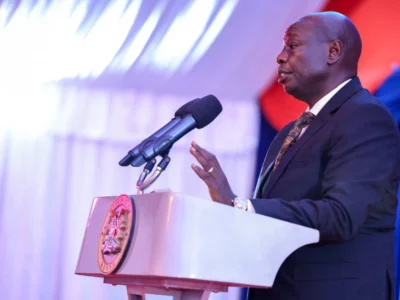Insights into Nairobi Women’s Views on Marriage and Polygamy

Insights into Nairobi Women’s Views on Marriage and Polygamy
A recent study by Mwelekeo Insights has revealed fascinating insights into the attitudes of Nairobi women toward marriage, polygamy, and personal freedom. The findings highlight a shifting landscape in societal norms, with women increasingly prioritizing personal fulfillment and independence over traditional marital expectations. Here’s a breakdown of the key findings:
1. Polygamy: A Divided Opinion
- 51% of Nairobi women are open to entering a polygamous marriage, indicating a significant acceptance of this practice under certain conditions.
- 49% of women, however, are firmly opposed to polygamy in any form or terms, reflecting a strong preference for monogamy or alternative relationship structures.
This near-even split suggests that polygamy remains a contentious issue, with cultural, religious, and personal values playing a significant role in shaping women’s perspectives.
2. Marriage and Personal Freedom
- 60% of Nairobi women fear that marriage could negatively impact their personal freedoms, highlighting concerns about losing autonomy in traditional marital setups.
- 25% believe marriage would have a positive impact on their personal freedoms, possibly viewing it as a source of stability and partnership.
- 15% remain neutral, indicating that their views on marriage and freedom are not strongly defined.
These statistics underscore the growing emphasis on individuality and self-determination among modern women, particularly in urban settings like Nairobi.
3. Marriage as a Path to Fulfillment
- 59% of Nairobi women believe that marriage is not necessary for a fulfilling life, challenging the long-held notion that marriage is a cornerstone of happiness.
- 41%, however, still view marriage as an integral step toward a fulfilling life, suggesting that traditional values continue to hold sway for a significant portion of the population.
This divide reflects a broader global trend where women are redefining fulfillment on their own terms, often outside the confines of marital institutions.
4. Education and Marriage Priorities
- 67% of highly educated and career-oriented women do not consider marriage a priority, indicating that education and professional aspirations may shift focus away from traditional life milestones.
- 37% of women with lower education levels are more likely to prioritize marriage, suggesting that socioeconomic and educational factors play a key role in shaping attitudes toward matrimony.
This disparity highlights how education and career opportunities empower women to make choices that align with their personal goals rather than societal expectations.
Key Takeaways
The study paints a picture of a society in transition, where Nairobi women are increasingly asserting their independence and redefining the role of marriage in their lives. While polygamy remains a polarizing topic, the broader trend points to a growing preference for personal freedom, self-fulfillment, and individual choice over traditional norms.
As societal expectations continue to evolve, these insights offer valuable food for thought for policymakers, relationship experts, and anyone interested in understanding the changing dynamics of marriage and relationships in modern Kenya.
What are your thoughts on these findings? Do they reflect the views of women in your community? Share your comments below!
Source: Mwelekeo Insights
















